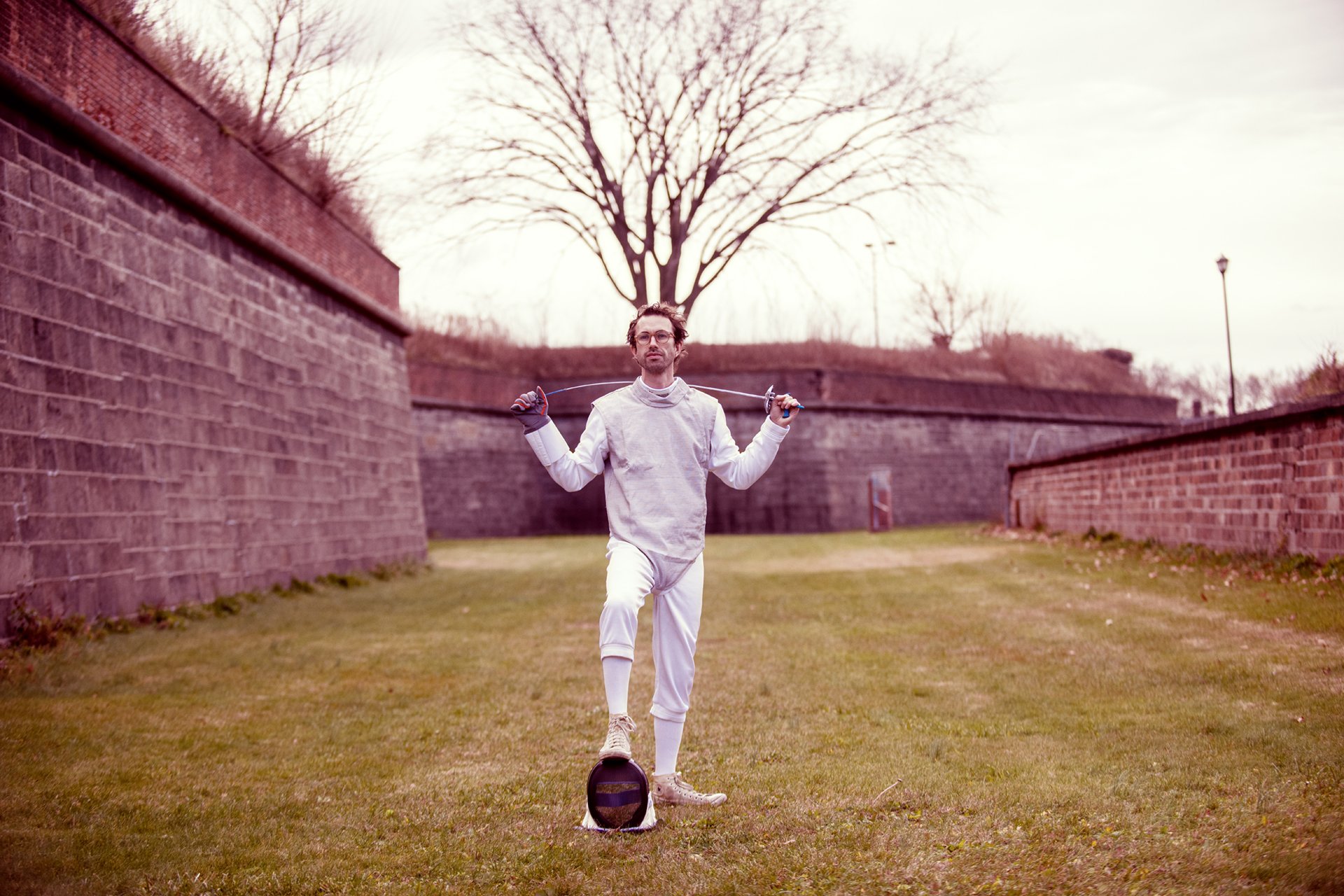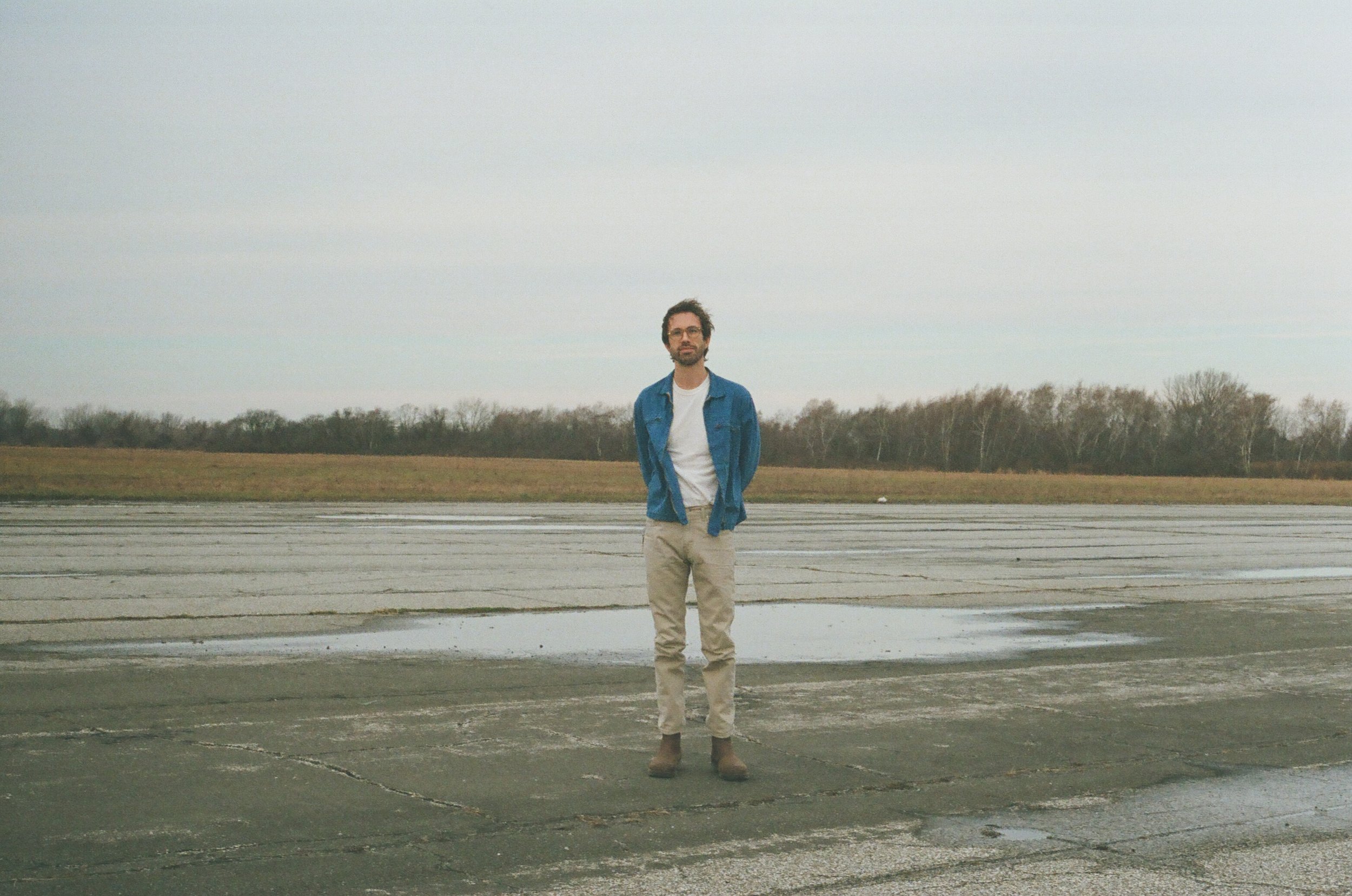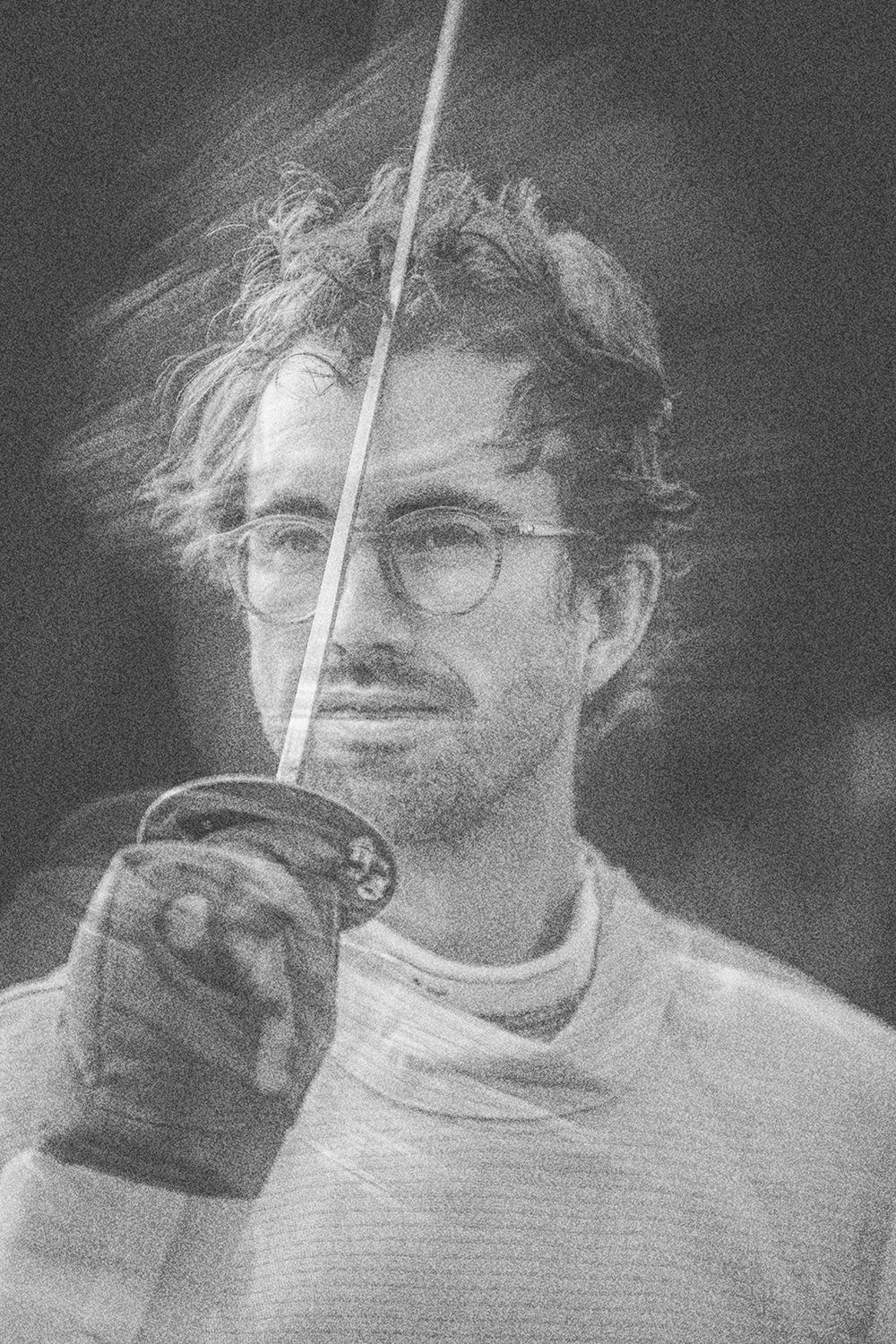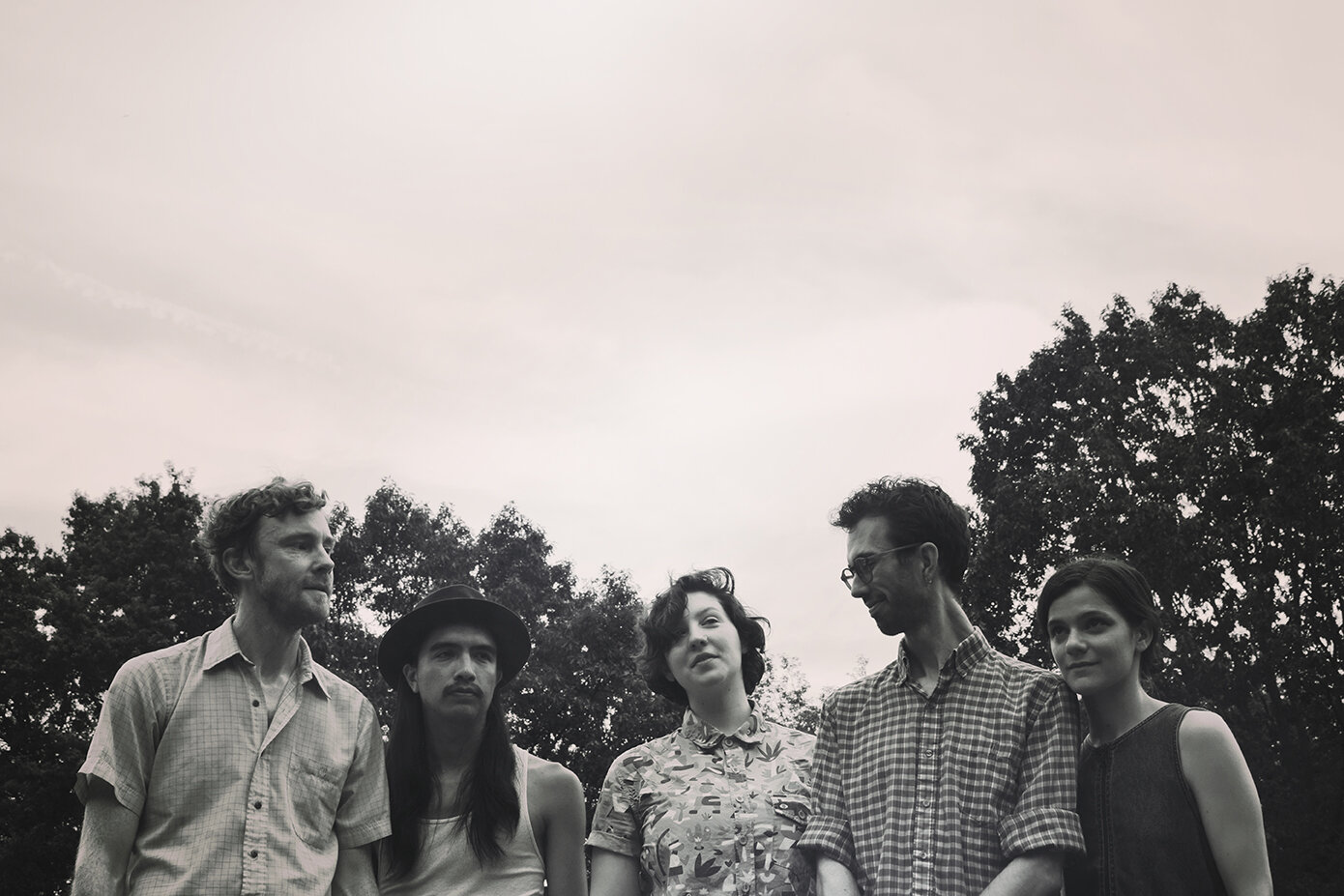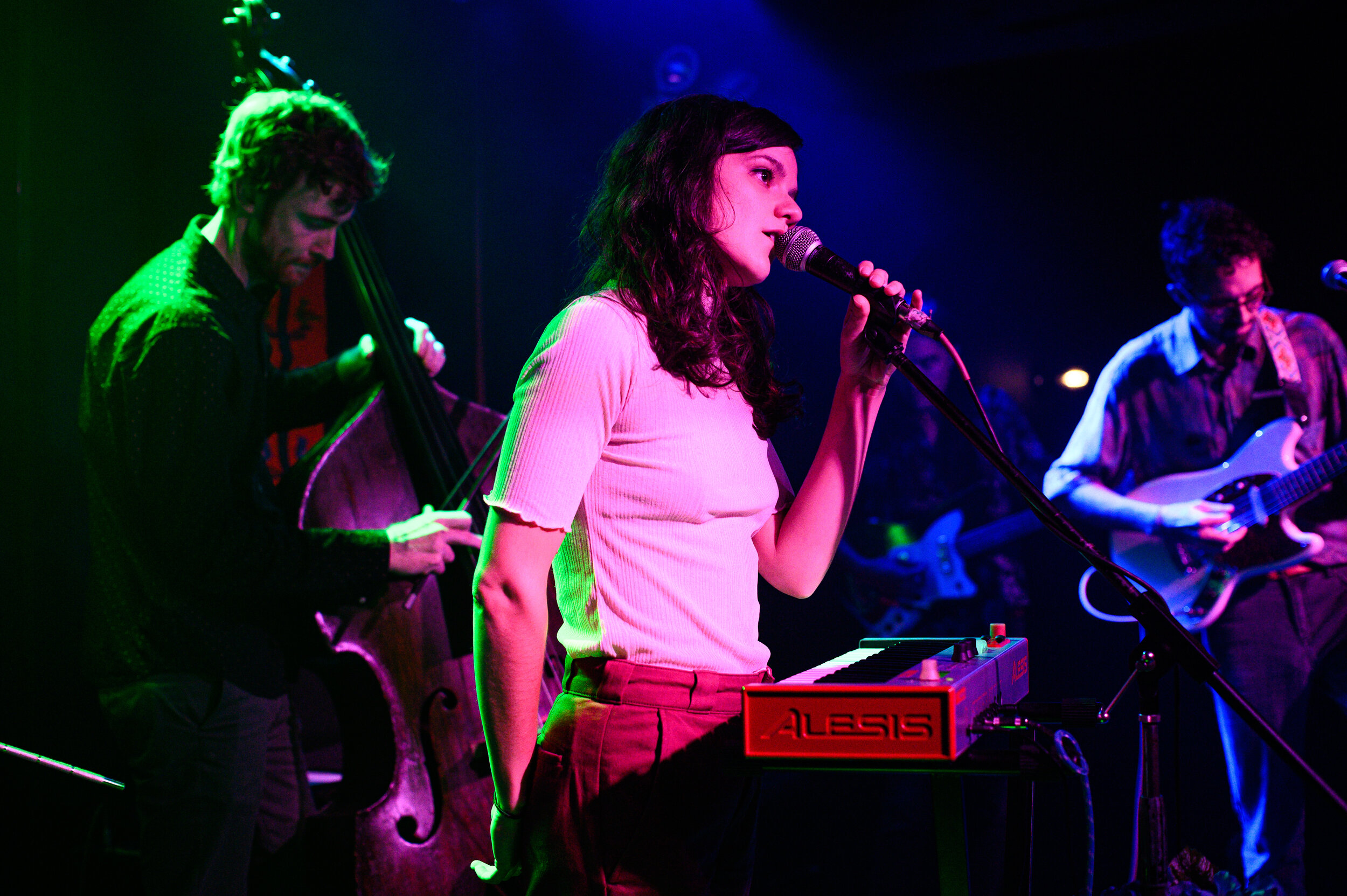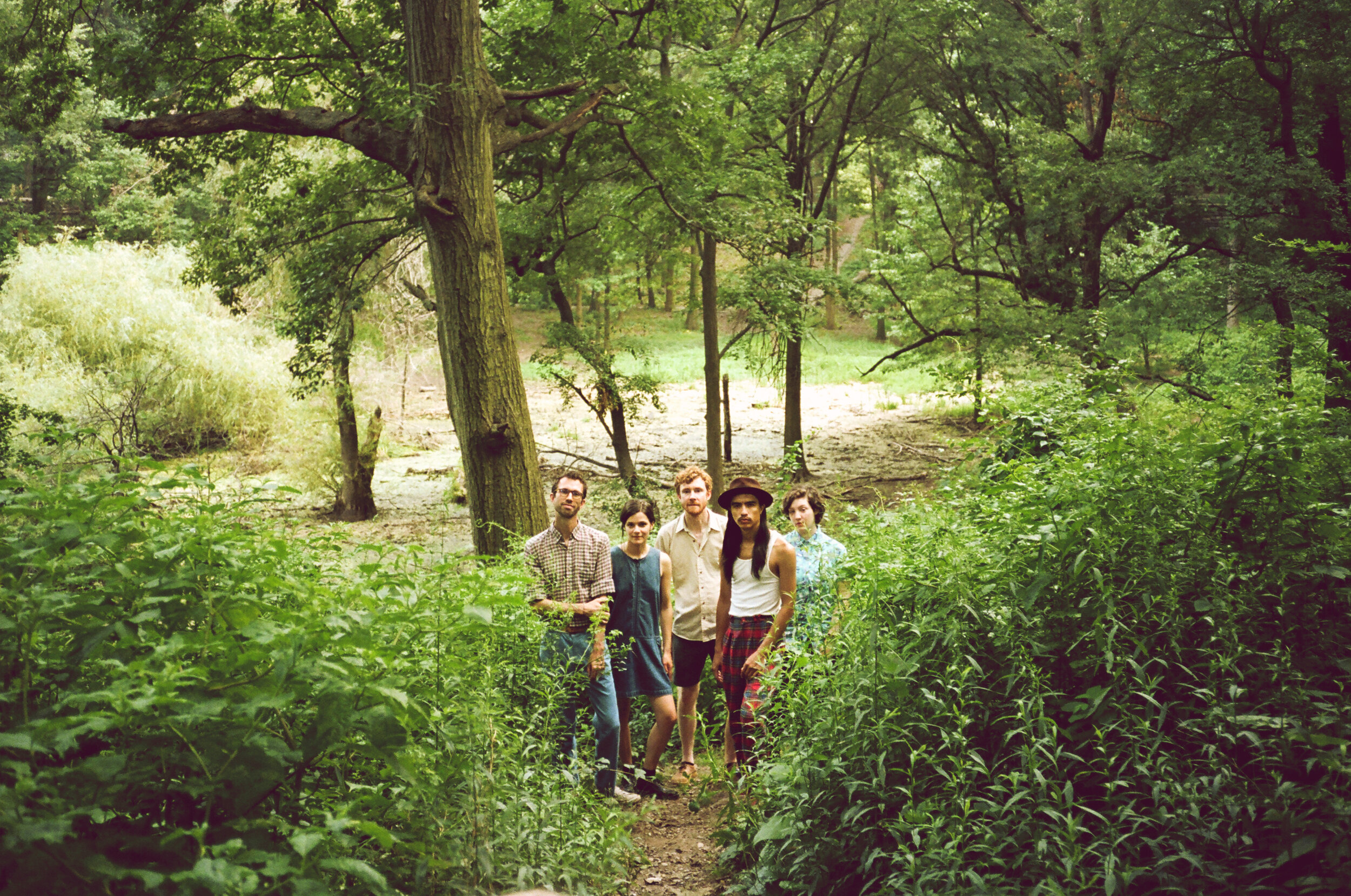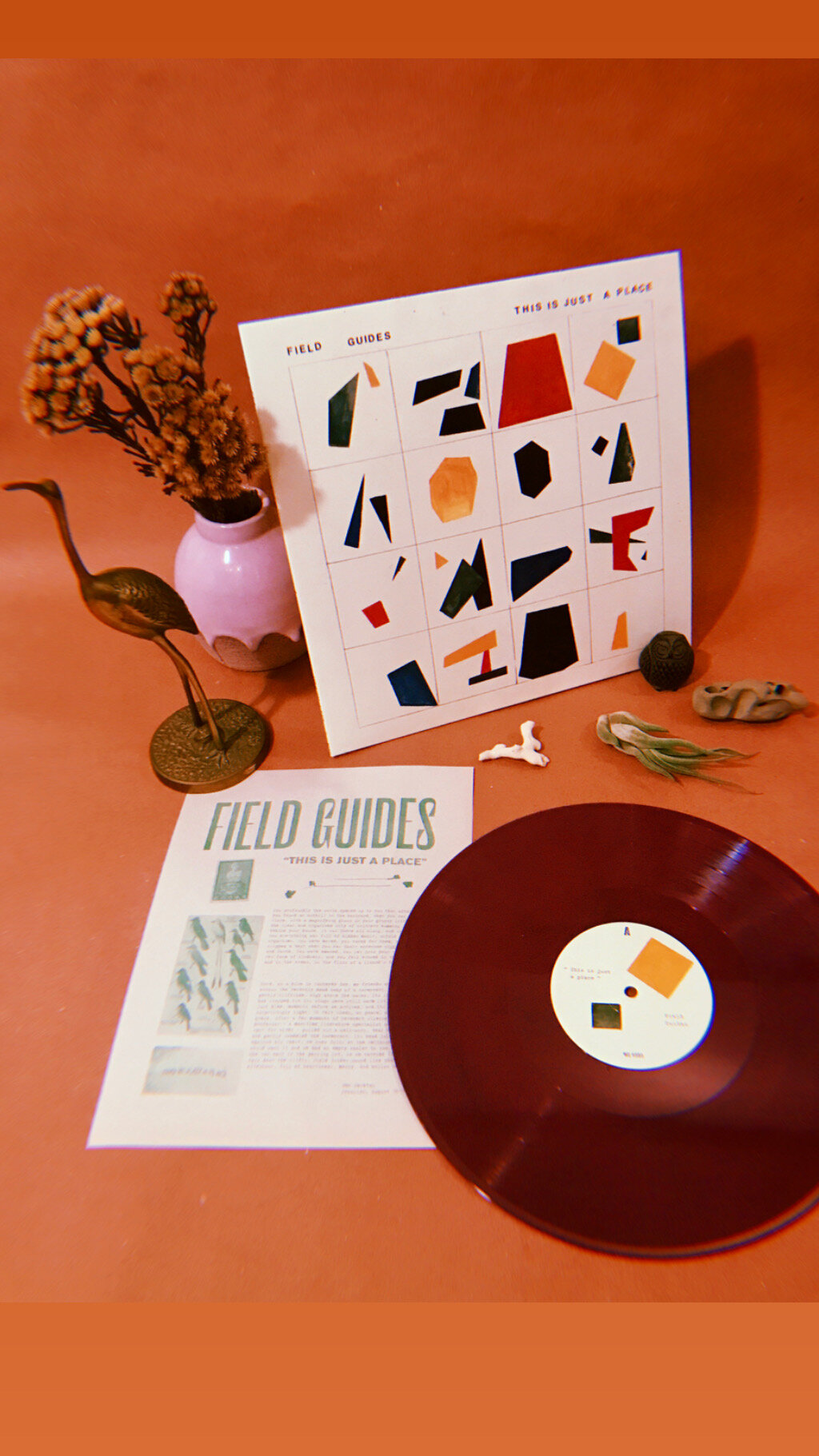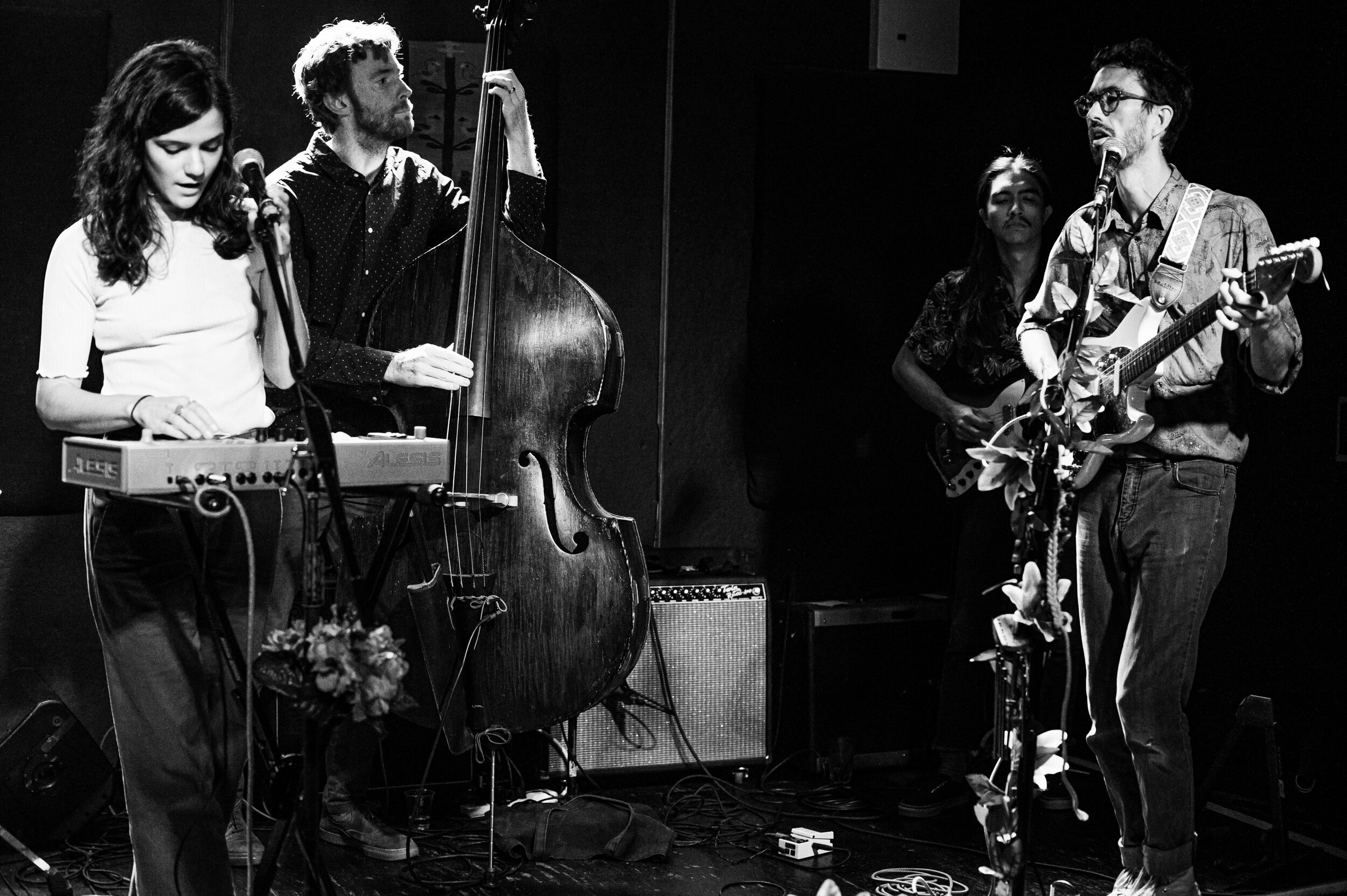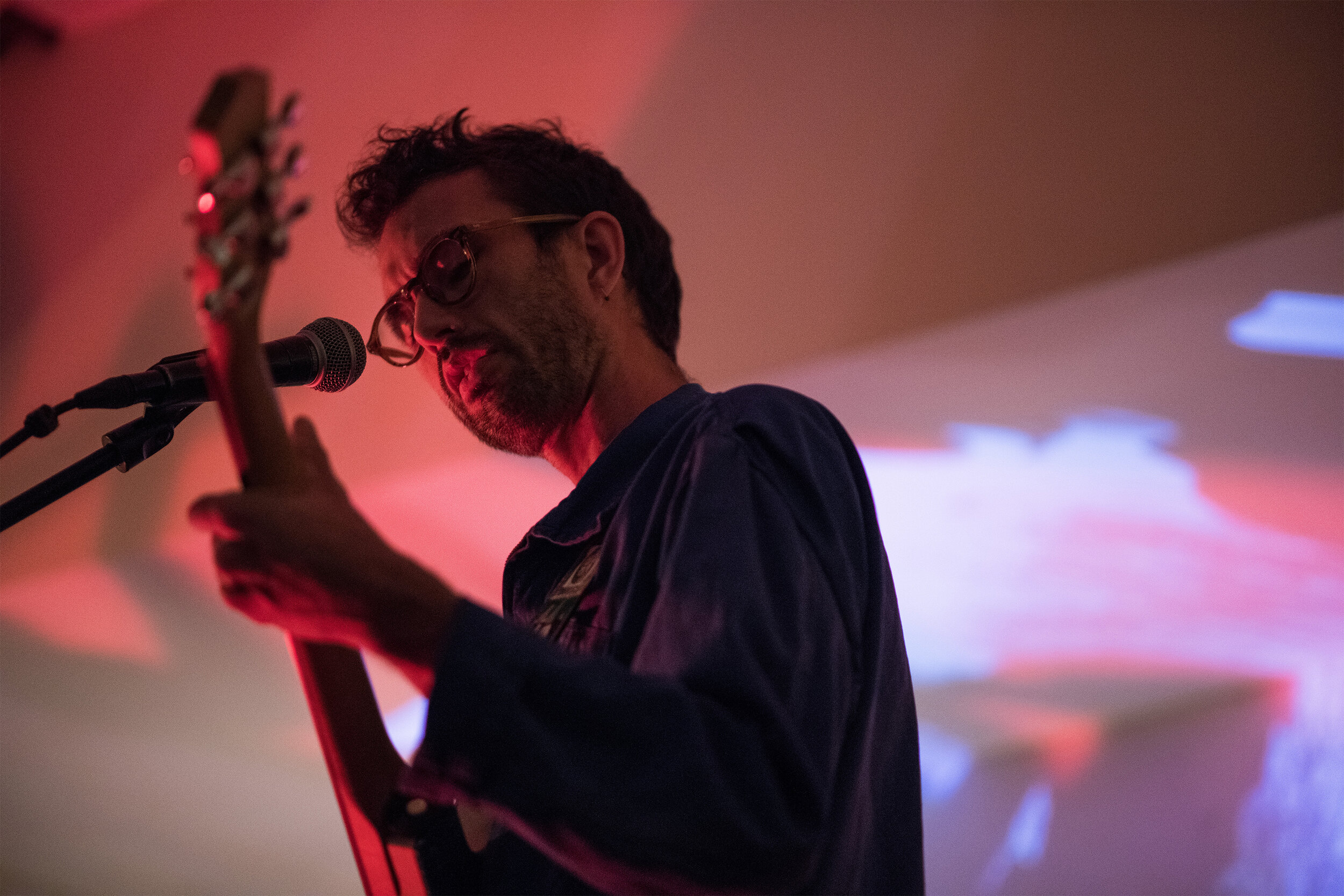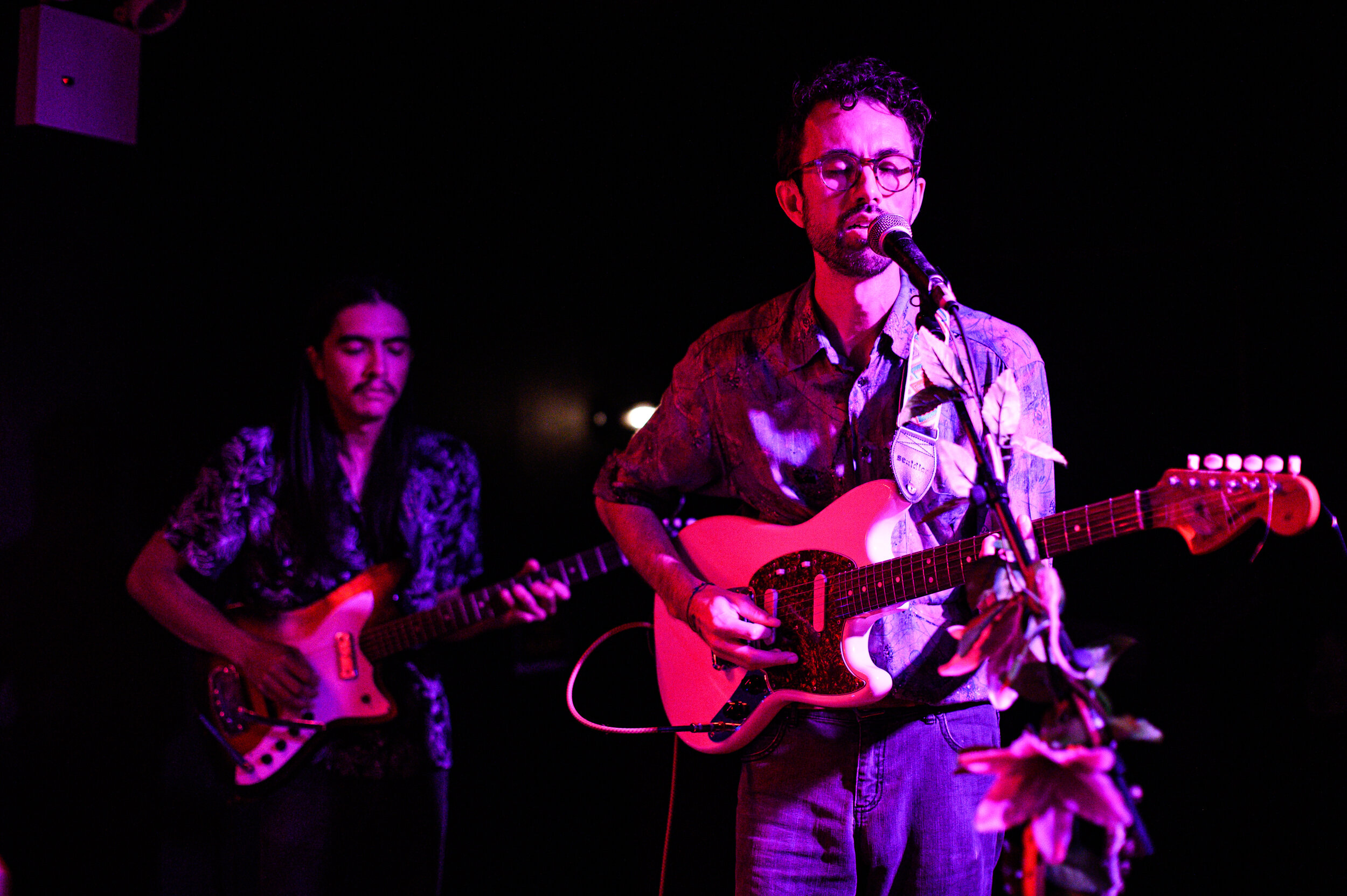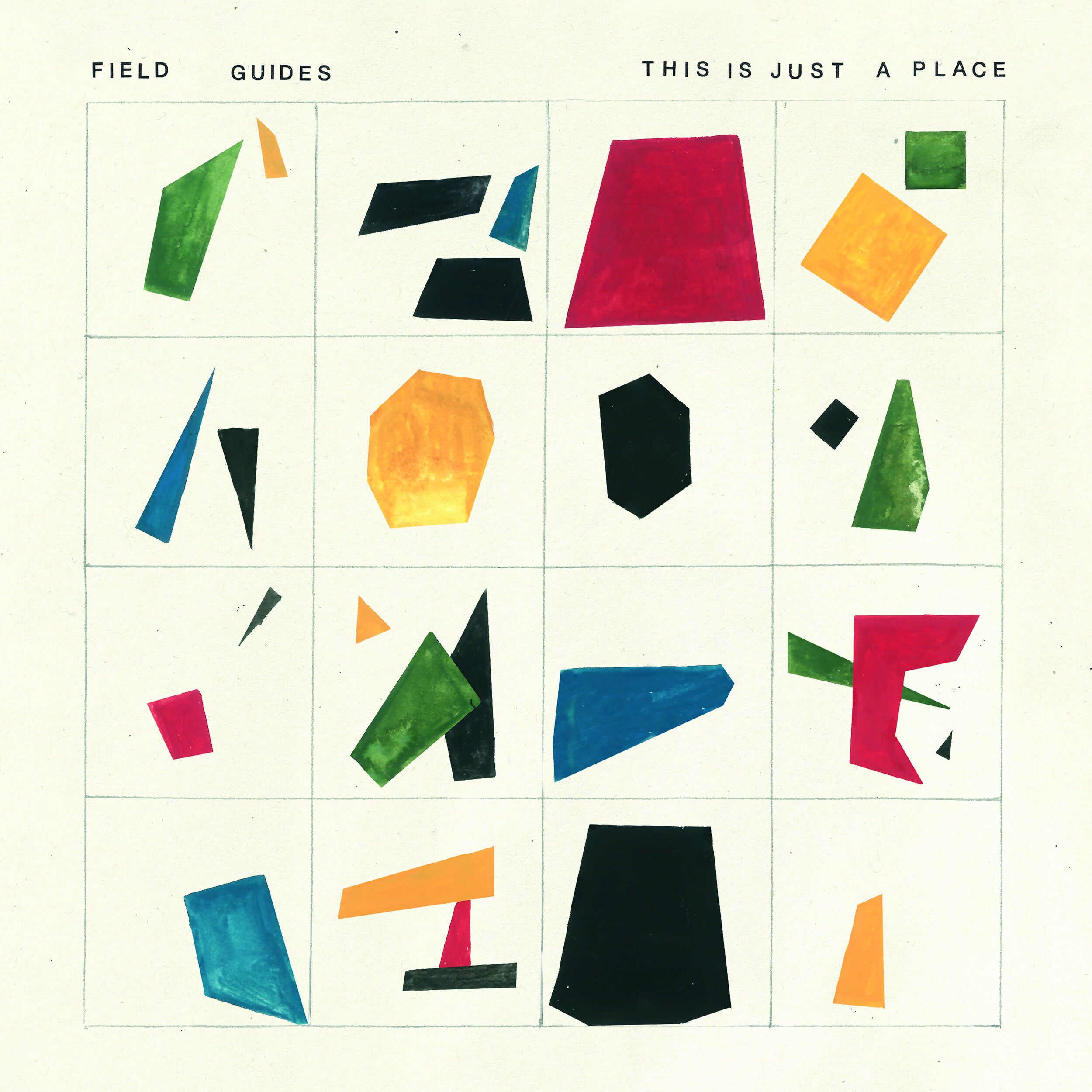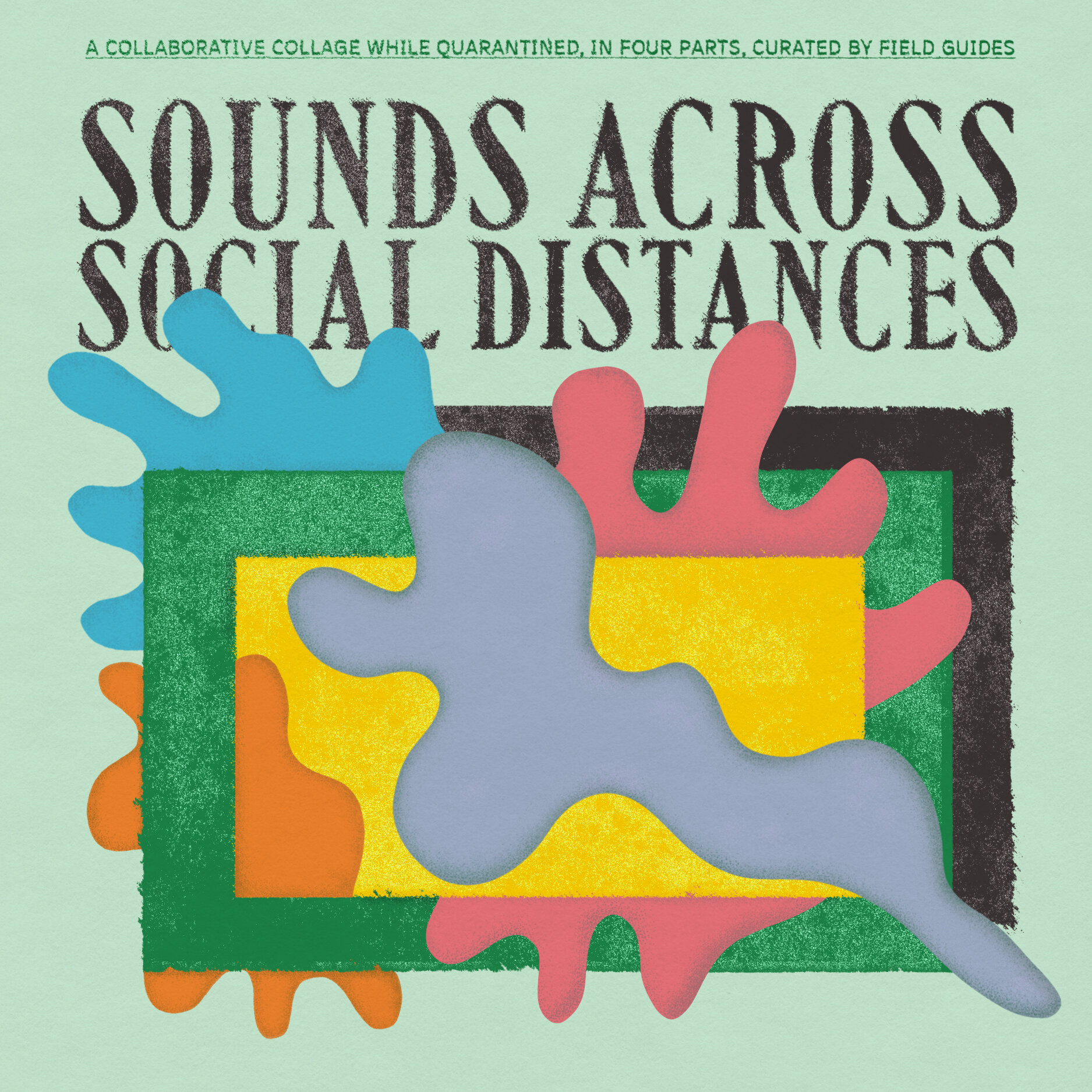Ginkgo
“The order of trees to which the ginkgo belongs once covered the earth, back in the Early Cretaceous, before largely disappearing. The ginkgo is its last living species, and it has hardly changed in 300 million years. But having been cultivated by humans since shortly after our story entwined with its own, the tree has returned to a wide array of environments: a living fossil you can find in your backyard. All it needs is water and time.
So it’s fitting that the ginkgo lends its name to the third album by Field Guides, the ever-adaptable project of Brooklyn-based songwriter Benedict Kupstas. Kupstas is a poet of place and memory, someone who locates profundity in the everyday, and the songs on Ginkgo are taproots of a personal mythology that flower with references to specific landscapes and events. Taking cues from the cryptic allusive wordplay of Joni Mitchell, the hushed explosiveness of Yo La Tengo, and the “new weird” songcraft of Big Thief, they map the emotional geography of what Kupstas calls “the feeling of being unmoored from the familiar.”
Take “Cicadas in the Lemon Trees,” written on a hilltop terrace in Crete amid the din of the titular bugs. Like every song on Ginkgo, this one is lushly ornamented (here, with harp, cello, clarinet, synths, field recordings, and a nylon-string guitar lent to Kupstas by the family he was staying with), and it absorbs a particular landscape (here, one haunted by centuries of Greek mythology). It also alludes to an episode of temporary aphasia Kupstas had in Helsinki. “I lost my voice while overseas,” he sings in an achy baritone pitched somewhere in Bill Callahan’s zip code, “like Hades took Persephone.” Or see lead single “Salmon Skin,” which developed out of correspondence between Kupstas, working in refugee settlements in Lebanon at the time, and a friend/romantic interest in California. It finds nostalgia and longing in physical distance, a feeling exuberantly transmitted by a coruscating saxophone solo from Adam Robinson.
In that way, Ginkgo feels accumulated, the creation of a writing process Kupstas describes as “fairly haphazard and accretive.” He collects stray lines and inspiration from the wider world (Judee Sill lyrics, Walter Benjamin quotes, factoids about trees), carrying and interpolating those scraps until they latch onto a melody. His exquisitely drawn lyrics—of love, loss, dislocation, and ultimately the effort to persevere and make meaning—can make permanent the bond between heartbreak and a peeled clementine.
But Ginkgo’s existence is also collective. Most of the record was written for a live unit of drummer Rachel Housle, bassist Taylor Bergren-Chrisman, vocalist/pianist Alena Spanger, guitarist Julian Cubillos, and reeds player Aaron Rourk, but the pandemic and the dissolution of a relationship/musical partnership necessitated a change in recording plans. Several songs (e.g. “Agios Sillas,” “Condensate”) confront that unraveling directly, a version of the band à la Rumours or Shoot Out the Lights. In the end, more than 20 musicians performed on Ginkgo (including Drew Citron of Beverly/Public Practice, Matt Evans, Carmen Q. Rothwell, and members of The War On Drugs and Stars Like Fleas). With the help of co-producers Shannon Fields and Nico Hedley, and with mixing by Eli Crews (Tune-Yards, Why?, The Fiery Furnaces), together they have created a record that sounds at once intimate and expansively collaborative—an overstory of human dramas playing out within an interwoven community that extends far beyond our own species.”
—Phillip Pantuso, Kingston, NY, 2022
Cover art by Tom Henry; Design & layout by Benedict Kupstas
Ginkgo is out NOW via Whatever’s Clever Records. You can Listen To & order the LP HERE.
PRESS FOR GINKGO
Named Album of The Year by For The Rabbits
“A striking sprawl that straddles lines of folk, pop, jazz, and a healthy dose of experimentalism.”—Chris Ingalls, PopMatters
“A collection of songs which rewards close and repeated listens, born in one man’s vision and realised within a community of collaboration. A record of turmoil, fear, and unease that seeks wonder not via some great transcendence but rather what already lies near.”—Jon Doyle, Various Small Flames
“[A]nother stunningly arranged single, conjuring both haunting beauty and serene introspection. Like much of the full album, “Margaret” is on its surface stripped back and pastoral, yet is brimming with a delicately layered soundscape just beneath. The track’s stark indie folk acoustic core is bolstered by fractured noise-filled production, colored by overlapping layers of synths, glockenspiel, dreamy harmonies, and a lovely horn arrangement. The effect feels like a sprawling forest, one that initially seems vacant but is teeming with untamed life.”—Caleb Campbell, Under The Radar
“[A] sort of link between the likes of Bill Callahan and David Berman.”—Austin Town Hall
“[T]hey’ve done something here that comes with a depth that goes beyond those National comparisons and into the realm of Tindersticks at their most glacial.”—mp3hugger
“Ginkgo is an album you could spend days exploring and still only feel like you’ve got half the story.”—For The Rabbits
“[B]rainy and existentialist indie-pop […] [I]t may just be one of the most rare, unsuspected and surprising musical happenings of 2022 … As the mood shifts from nods to the gloomy hills of Nick Cave, the melancholy of The Slow Show to a Seabear-ish mellow playfulness (just look out for “Agios Sillas”), one cannot help but feel a particular mythological feel there is to Ginkgo. And it is not just the impression that the record plunges deep under the surface, invoking themes like mental illness and the anxieties of the Anthropocene, but in the very soothing and transformative erosions of the musical design of the record itself. Just take the wind chime beginning of “Cicadas in the Lemon Trees,” which lead right to a touching interplay between the sombre deep voice of Benedict Kupstas and a female counterpart. It does make sense, that the arboreal theme of the cover and the record’s title, pulls through the record like a thread, for it is these substantial roots the record chooses to burrow, making Ginkgo a collection of songs that by far exceed the realm of metaphoric beauty.”—Nothing But Hope and Passion
THIS IS JUST A PLACE
Art by Julia Huete
This Is Just A Place is out now via Whatever’s Clever Records. You can order the LP HERE.
Instagram | Facebook | Bandcamp | Spotify | Apple Music
“How profoundly the world opened up to you that afternoon you found an anthill in the backyard, when you saw up close, with a magnifying glass in your grubby little paw, the clean and organized city of critters humming just behind your house. It was there all along, and suddenly now everything was full of hidden magic, untold organisms. You were moved, you cared for them, your heart skipped a beat when you saw their antennae wiggling back and forth. You were amazed. You let into your ribcage a new form of kindness, one you felt echoed in the grass and in the trees, in the flick of a lizard's tongue.
Field Guides—the long-running, ever-evolving Brooklyn collective helmed by singer/songwriter Benedict Kupstas—make quietly explosive guitar pop and skewed folk that zooms out along those lines. Swirling birdsong, lines from poems, sea foam, and sand all honeycomb expansively around sweet baritone melodies that lie growing and plump, like mushrooms under a log.
Kupstas has written songs and played instruments in a number of bands over the last two decades. For several years he toured internationally with Young Jean Lee's Theater Company in the critically acclaimed show We're Gonna Die, including performances at Lincoln Center, the Melbourne Festival, Festival d’Automne à Paris, and the 2015 Meltdown Festival, at which he shared the stage with his hero, David Byrne.
For This Is Just A Place, Kupstas has been joined by an impressive ensemble, including percussionist Booker Stardrum (Lee Ranaldo, Weyes Blood, Cloud Becomes Your Hand), saxophonist Angela Morris (Helado Negro, Rallidae), bassist Taylor Bergren-Chrisman (Golem, Las Rubias del Norte), singer Alena Spanger (Tiny Hazard), and indie luminary Fred Thomas (Saturday Looks Good to Me, much else). The album was recorded, mixed, and mastered by D. James Goodwin (Kevin Morby, Craig Finn, Landlady) at The Isokon in Woodstock during a heavy snowstorm. Woven throughout the songs are literary references to Julio Cortázar, Lorrie Moore, Vladimir Nabokov, and A. R. Ammons. And amidst all this we trace bits of field recordings from far-flung locales like Corcovado National Park in Costa Rica, Parco Nationale delle Cinque Terre in Italy, and Sapsucker Woods in Ithaca, NY.
Once, on a hike in Monterey Bay, my friends and I came across the recently dead body of a cormorant, splayed gently cliffside, high above the waves. Its little heart had stopped but its wings were still warm (it must have just died, moments before we arrived) and its body surprisingly light. It felt clean, at peace, and full of grace. After a few moments of reverent silence our professor—a maritime literature specialist with a soft spot for birds—pulled out a well-worn, teal beach towel and gently swaddled the cormorant, its head lolling back against his chest. He knew folks at the Smithsonian who would want it and we had an empty cooler in the back of the van back in the parking lot, so we carried it with us back down the cliffs. Field Guides sound like that afternoon, full of heartbreak, mercy, and hollow bones.”
—Ben Seretan, August, 2019
PRESS FOR THIS IS JUST A PLACE
“TOP 20 ALBUMS OF 2019: Field Guides managed to grasp the ephemeral with their newest album. The sound throughout the album feels more delicate than it is as each song develops its own texture. Sounds and instrumentation are added to steady drum beats capturing a feeling of overwhelming calm. Some genres and bands try to push the boundary of what can be musical, and Field Guides are no different. They just go about pushing the boundaries in a softer and more listenable way.”—Jacob Holke, Surviving the Golden Age
“Taking a reconnection with nature as its narrative arc, Field Guides’ debut sits as one of the year’s most rewarding discoveries; a wholesome and beautiful indie rock record that will light you up and then swallow you whole.”—GoldFlakePaint
“A slice of atmospheric folk pitched somewhere between the expansive music-world of Fanfarlo and the downbeat introspection of Elvis Depressedly, Guessing At Animals instantly feels like a leap forward. At the heart of the song’s appeal is a back and forth between Benedict and his, “someone new”, voiced by the delightful tones of Jamie Reeder, as the pair play out a romantic encounter, doomed or otherwise. It all seems to be going so well until the pair part, and Benedict, walking home alone, gets stuck on the line, “this is the first song not about you”, as the spectre of his ex creeps into view, is, “Benny boy”, ready to move on? He might have a new subject for a song, but as he admits, “I’m not sure, not just yet, can this go a little more?” Like the first chapter of a really engrossing book, Guessing At Animals hooks you in and has you wanting to find out how it ends, come September we might just find the answer.”—For The Rabbits
READ THIS EXCELLENT FEATURE/INTERVIEW ABOUT THE ALBUM FROM VARIOUS SMALL FLAMES.
SOUNDS ACROSS SOCIAL DISTANCES
Artwork by Benedict Kupstas
“Standing on this hill with no view of the sea,
I look for that very reason to the sea.”
—Santiago Sylvester
The “exquisite corpse” (cadavre exquis) is a game first devised by some hip French surrealists in the early 20th century. André Breton claimed his crew invented it around 1925, but Pierre Reverdy argued it dated back to at least as early as 1918.
We don’t want to get between André and Pierre, so suffice it to say some Montparnasse artistes likely developed it in some opium-hazed parlor as a collaborative technique for harnessing the “mystique of accident”... Someone writes or draws something on a piece of paper, folds the paper to conceal all but a small part of the writing or drawing, and then passes it to the next participant, and so on. Henry Miller, Marcel Duchamp, and Man Ray were all frequent players. I’m not aware of it being attempted as a method for musical collaboration… That is, until now!
As a global pandemic has halted cultural gatherings and led to cancellations of concerts, tours, and recording sessions, we’ve all been trying to adapt creatively, finding ways to collaborate across social distances. The collagist dialogue of the exquisite corpse seemed like a fitting approach for roping in a bunch of friends to make something together, apart.
It started as just an exercise to weather this odd isolation with 30 of our friends, but as I began weaving together folks’ contributions I was gleefully surprised as the sounds took shape, forming an engrossing sound quilt. We hope you enjoy listening to our experiment as much as we enjoyed making it. We recommend listening with a window open, letting the ambient noise of your environment contribute to the “mystique of accident.”
✿✿✿✿✿✿✿✿✿✿✿✿✿✿✿✿✿✿✿
Participants, in order of appearance:
Benedict Kupstas (henceforth BK) (fieldguides.bandcamp.com), Alena Spanger (instagram.com/alenaspanger), Quarterly (Kristen Drymala & Christopher DiPietro; (quarterlymusic.bandcamp.com), Nick Jenkins (infinitikiss.bandcamp.com), Dan Papa (flatmaryroad.bandcamp.com), Thea Brown, Ethan Woods (hyperiondrivehyperiondrive.bandcamp.com), Tristan Kasten-Krause (tristankastenkrause.com), Aaron Rourk (musicartpuppetsound.org), Aaron Hodges (kinhanasound.com), CF Watkins (cfwatkins.com), Benjamin Ostendorf, Matt Evans (thisismattevans.bandcamp.com), Rose Blanshei (roseblanshei.com), Max Horwich (sewingmachines.bandcamp.com), Steve Teare (flatmaryroad.bandcamp.com), Ben Seretan (benseretan.bandcamp.com), Shannon Fields (whyleveragemodels.com), Alex Lewis (alexjrlewis.com), Eamon Fogarty (eamonfogarty.bandcamp.com), Dan Knishkowy (adelinehotel.bandcamp.com), Nico Hedley (nicohedley.bandcamp.com), Kosta Stratigos, Jamie Reeder (weirdmirror.bandcamp.com), Giovanni Saldarriaga (transistorray.bandcamp.com), Very Good (Sean Cronin; seancroninsverygood.bandcamp.com), Clebs (Emilie Weibel & Jason Nazary; clebs.bandcamp.com), Jamie Reeder (weirdmirror.bandcamp.com), Alex Greiner (alexgreiner.bandcamp.com), Brooks Frederickson (brooksfrederickson.com), Hamilton Belk (www.roughlynowhere.com), Ava Benezra
✿✿✿✿✿✿✿✿✿✿✿✿✿✿✿✿✿✿✿
Art & design by Benedict Kupstas
Stitched, woven, & mixed by Benedict Kupstas
Lovingly mastered by Alex Greiner
✿✿✿✿✿✿✿✿✿✿✿✿✿✿✿✿✿✿✿
* Part 1 contains a recording of Thea Brown reading her poem "Solo III" (bettermagazine.org/006/theabrown.html)
* Part 4 contains a fragment of “Goodnight, Sweetheart” by Ray Noble, Jimmy Campbell, and Reg Connelly, as sung by Rose Blanshei



